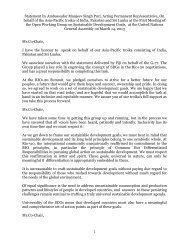STATE OF THE WORLD'S CITIES 2012/2013 Prosperity
STATE OF THE WORLD'S CITIES 2012/2013 Prosperity
STATE OF THE WORLD'S CITIES 2012/2013 Prosperity
You also want an ePaper? Increase the reach of your titles
YUMPU automatically turns print PDFs into web optimized ePapers that Google loves.
prosperity.” 6 Remedies<br />
here include such public<br />
goods as political freedom,<br />
economic facilities, social<br />
opportunities, transparency<br />
and security, with the<br />
safeguards against a variety<br />
of risks that they ensure for<br />
basic capabilities.<br />
<strong>THE</strong> RISkS <strong>OF</strong><br />
UNCHALLENGED<br />
DIvISION<br />
A growing body of<br />
research connects the<br />
competitiveness of cities<br />
with social cohesion.<br />
Analysis increasingly<br />
links the importance of<br />
tackling inequality at earlier<br />
stages of development<br />
to the achievement of<br />
prosperity. Reducing<br />
inequality and poverty has<br />
been highlighted as a key<br />
aspect of urban quality<br />
of life. A UNICEF study<br />
on poverty reduction<br />
mentioned that “evidence from India, China and Brazil<br />
indicates very clearly that efforts to ease inequalities<br />
generate larger dividends for poverty reduction than a<br />
more conventional focus on economic growth”. 11 An<br />
OECD study has reached similar conclusions: the notion of<br />
social cohesion includes dimensions of social relationships,<br />
social inclusiveness and social equity, which are major<br />
components of broader-defined prosperity. “The key<br />
idea that has emerged to link these concerns is that social<br />
cohesion improves economic performance. This is a more<br />
positive way of saying that social division and fragmentation<br />
undermine long-term economic success”. 12<br />
However, the absence of social cohesion, particularly<br />
in the form of equity, does not just challenge economic<br />
success: it also jeopardises prosperity as a whole through<br />
the multidimensional, and far-reaching consequences<br />
which inequity spreads throughout urban society. UN-<br />
Habitat analysis (2010) of urban inequality in 47 developing<br />
countries challenged the notion that inequity is an<br />
acceptable, inevitable aspect of economic growth. 13<br />
71<br />
Equity and the <strong>Prosperity</strong> of Cities<br />
Kibera, Nairobi: Looking out ... access to good education is one<br />
way out the slum.<br />
© Eduardo Lopez Moreno<br />
Recently, OECD experts agreed that economic growth<br />
and equality were by no means contradictory variables but<br />
instead can, and arguably should, act in a complementary<br />
way, stressing that “researchers are increasingly finding that<br />
regions marked by higher levels of inequality, in fact, find<br />
their economic performance damaged.” 14<br />
The statement that ‘more equal cities are more<br />
prosperous cities’ is<br />
increasingly supported by<br />
evidence, and has become<br />
More and<br />
a development proposition. FACT more empirical<br />
Without elaborating on<br />
data suggests a strong<br />
the moral principle that<br />
connection between<br />
equity and economic<br />
inequality is inherently<br />
prosperity, with equity<br />
unacceptable, it would<br />
being a cause not a<br />
appear that when certain result of economic<br />
groups of people are<br />
prosperity.



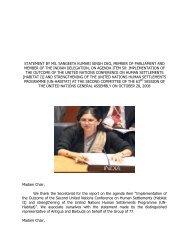
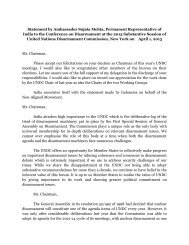

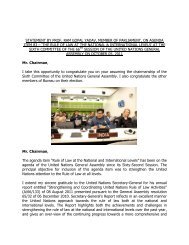
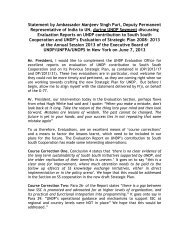


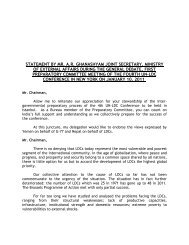
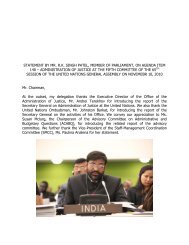
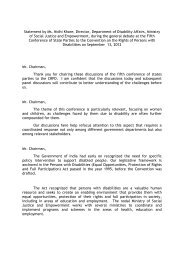
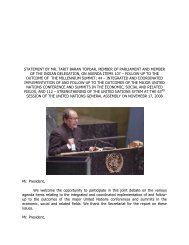
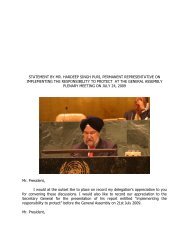
![1 statement by dr.[mrs] kakoli ghosh dastidar - Member States Portal](https://img.yumpu.com/27526598/1/190x245/1-statement-by-drmrs-kakoli-ghosh-dastidar-member-states-portal.jpg?quality=85)
